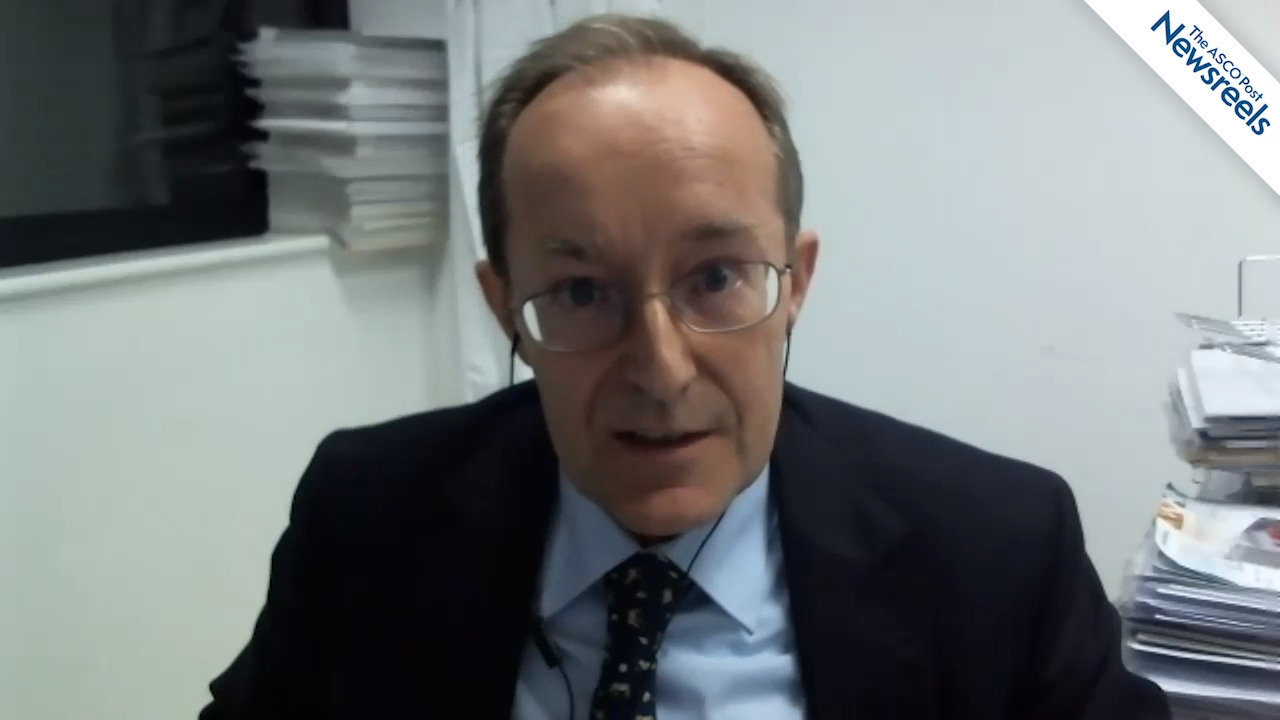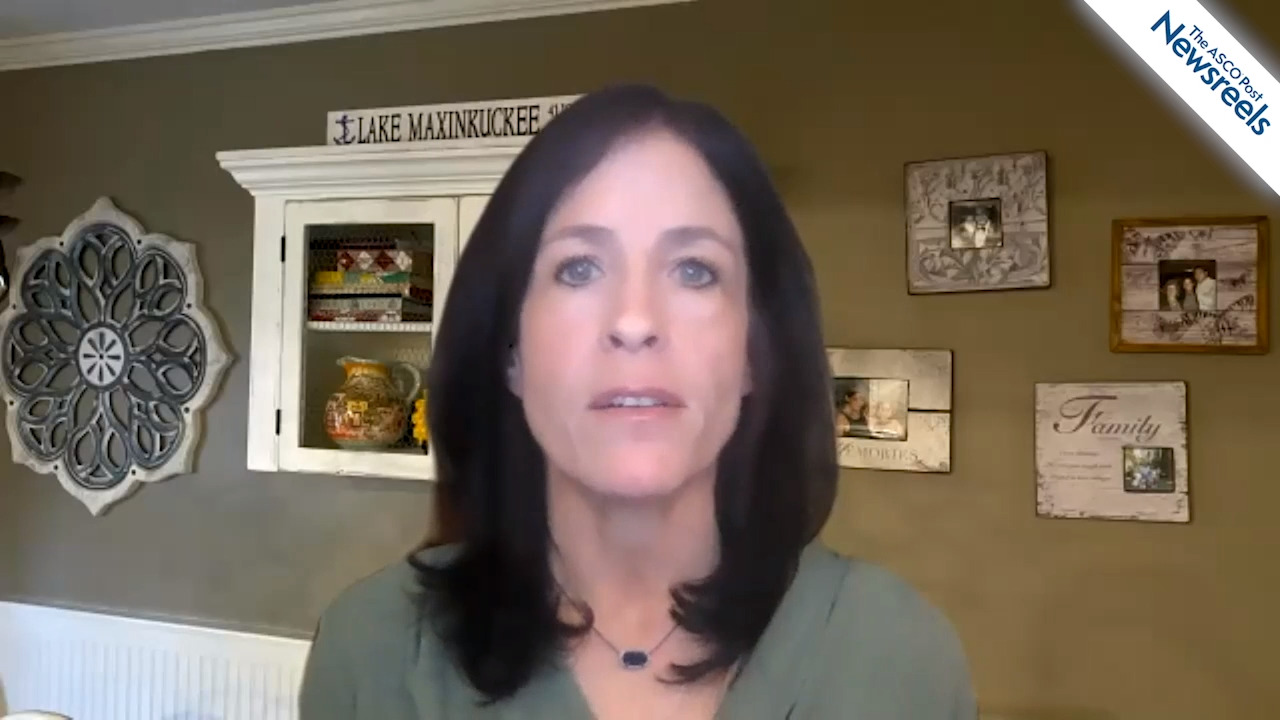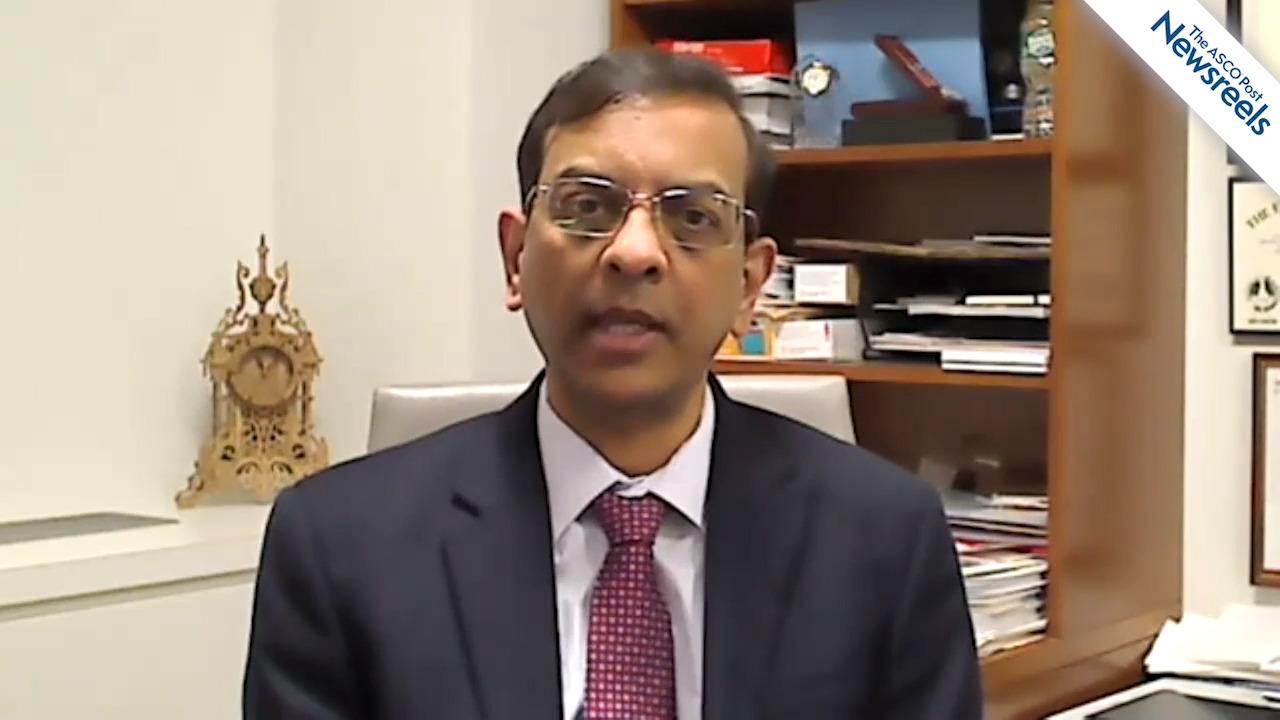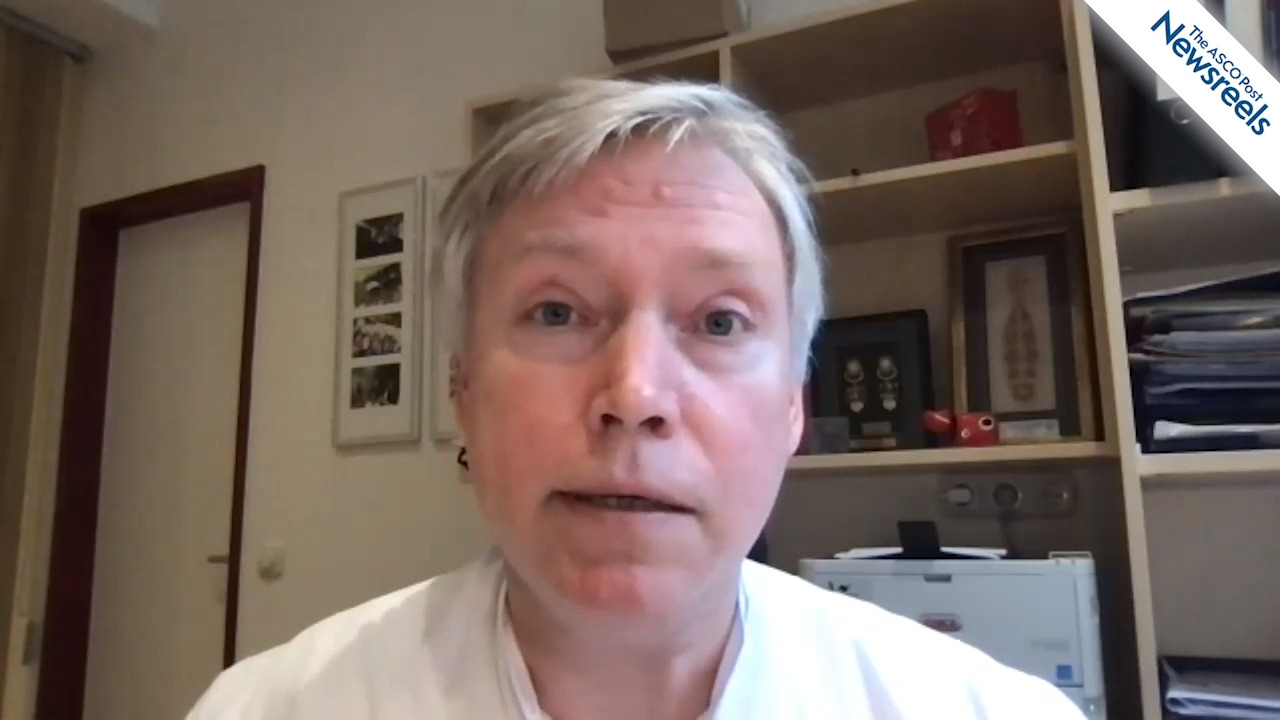Fred R. Hirsch, MD, PhD, on Lung Cancer: Survival and Tumor Mutation Burden
IASLC 2020 World Conference on Lung Cancer in Singapore
Fred R. Hirsch, MD, PhD, of Mount Sinai Medical Center, discusses Lung-MAP studies in which a higher tumor mutation burden determined by next-generation sequencing was linked to overall and progression-free survival across two immunotherapy trials, and was independent of PD-L1 status (Abstract OA01.04).
The ASCO Post Staff
Luis M. Montuenga, PhD, of the University of Navarra, discusses the potential contributions of biomarkers, promising biomarker panels being tested and published, the need to standardize biospecimen collection, and how to improve the sensitivity of these biomarkers (Abstract PL05.06).
The ASCO Post Staff
Jill Feldman, a patient advocate who has lost five family members to lung cancer and is herself a 12-year cancer survivor living with EGFR-positive disease, describes her family history of cancer, how she has worked with her physicians for more than a decade to survive her own diagnosis, and the message she would like all oncologists to hear.
The ASCO Post Staff
Prasad S. Adusumilli, MD, of Memorial Sloan Kettering Cancer Center, discusses ongoing CAR T-cell therapy clinical trials for solid tumors, the key determinants of success for developing this treatment, and some study results to date (Abstract PL03.05).
The ASCO Post Staff
Dean Fennell, FRCP, PhD, of the University of Leicester, discusses phase III results from the CONFIRM trial, which sought a standard immunotherapy treatment to improve overall survival for patients with mesothelioma who have relapsed after taking pemetrexed and cisplatin. Globally, the incidence of mesothelioma is on the rise; in the United Kingdom alone, it has gone up nearly 500% since the 1970s (Abstract PS01.11).
The ASCO Post Staff
Martin Reck, MD, PhD, of the LungenClinic, discusses findings of the KEYNOTE-598 study, which showed that pembrolizumab plus ipilimumab was more toxic and offered no more benefit in terms of efficacy than pembrolizumab plus placebo in first-line therapy for patients with metastatic high PD-L1–expressing non–small cell lung cancer (Abstract PS01.09).





